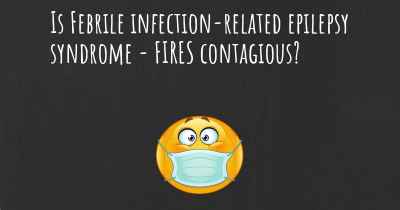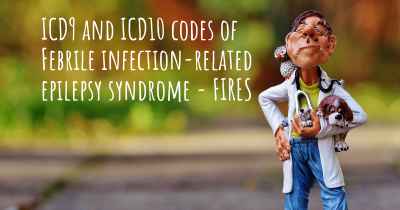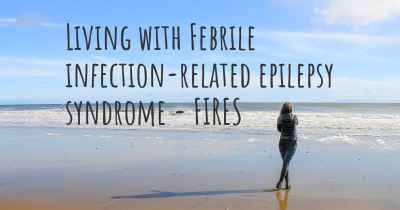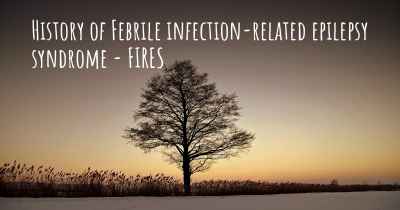What is the life expectancy of someone with Febrile infection-related epilepsy syndrome - FIRES?
Life expectancy of people with Febrile infection-related epilepsy syndrome - FIRES and recent progresses and researches in Febrile infection-related epilepsy syndrome - FIRES

Febrile infection-related epilepsy syndrome (FIRES) is a rare and severe form of epilepsy that primarily affects children and young adults. Unfortunately, the prognosis for individuals with FIRES is generally poor. The condition often leads to significant cognitive and neurological impairments, including persistent seizures that are difficult to control. While there is no specific data on life expectancy for FIRES, it is important to note that the condition can have a devastating impact on overall health and quality of life. Treatment approaches aim to manage symptoms and improve outcomes, but the unpredictable nature of FIRES makes it challenging to provide a definitive prognosis.
Febrile infection-related epilepsy syndrome (FIRES) is a rare and severe form of epilepsy that primarily affects children and young adults. It is characterized by the sudden onset of prolonged seizures (status epilepticus) following a febrile illness, such as an infection. FIRES is a devastating condition that can have significant long-term consequences for the affected individuals and their families.
The exact cause of FIRES is still unknown, and there is limited understanding of its underlying mechanisms. It is believed to be a multifactorial condition, involving a combination of genetic predisposition and environmental factors. The initial febrile illness triggers an abnormal immune response, leading to inflammation in the brain and subsequent development of seizures.
The prognosis of FIRES is generally poor, and the condition can be life-threatening. The seizures associated with FIRES are often resistant to treatment with antiepileptic drugs, making them difficult to control. The prolonged and frequent seizures can cause significant brain damage and cognitive impairment.
Due to the rarity of FIRES, there is limited data available on the long-term outcomes and life expectancy of individuals with this condition. However, studies suggest that mortality rates in FIRES can be high. The exact mortality rate varies among different studies, but it has been reported to range from 5% to 30%. The most common causes of death in individuals with FIRES are complications related to status epilepticus, such as respiratory failure, cardiac arrest, or severe brain damage.
It is important to note that each case of FIRES is unique, and the severity and progression of the condition can vary widely among individuals. Some individuals may experience a single episode of FIRES and eventually achieve seizure control, while others may have recurrent episodes or develop other forms of epilepsy.
Management and treatment of FIRES typically involve a multidisciplinary approach, including neurologists, epileptologists, intensive care specialists, and other healthcare professionals. The primary goal of treatment is to control seizures and minimize their impact on the individual's overall health and quality of life.
Various treatment modalities may be employed, including high-dose antiepileptic medications, immunotherapies, ketogenic diet, and supportive care in an intensive care unit. However, despite aggressive treatment, many individuals with FIRES continue to experience seizures and face long-term neurological impairments.
The long-term prognosis for individuals with FIRES is highly variable. Some individuals may experience significant cognitive and functional recovery over time, while others may have persistent neurological deficits and intellectual disabilities. The impact on life expectancy is difficult to determine precisely due to the limited data available.
It is crucial for individuals with FIRES and their families to receive comprehensive support and ongoing medical care. Early intervention, access to appropriate therapies, and a strong support network can help improve the quality of life for individuals living with FIRES.
Posted Jun 20, 2022 by Carla 4020








